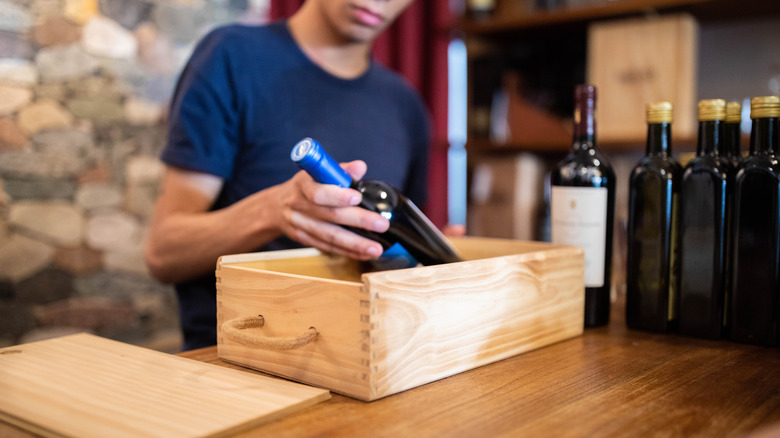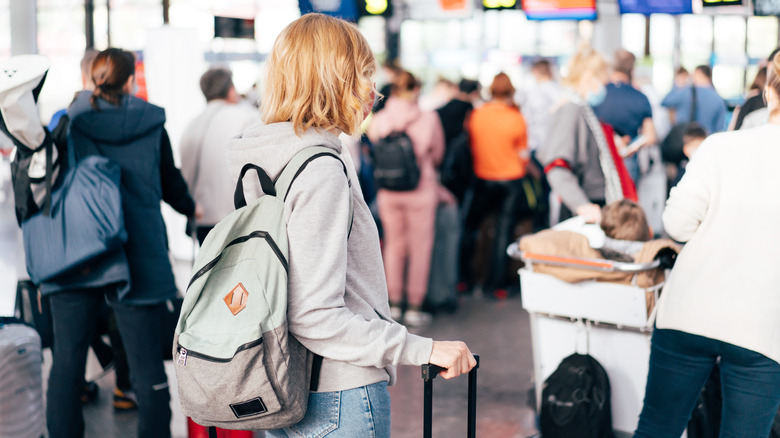Whether you’re feasting on a rich pasta dinner with a glass of Tuscan red or sipping the sweet notes from sun-kissed grapes in Northern Portugal, European wine can add a whole other dimension to your trip. Although the world is more connected than ever before, you may come across brands that you can’t find at home. Thankfully, guidebook author and European travel expert Rick Steves (and contributor Ruth Arista) has a few tips for wine transport via his blog Rick Steves Europe.
Before you snag a bottle or two for your personal collection, know that the logistics of transporting alcohol can prove tricky. The last thing you want is a broken bottle in your suitcase, staining your clothes and scattering shards of glass. To avoid this unnecessary hassle, look up the winery on your phone and see if their products are available where you live. If not, see if there’s a way to have a few bottles shipped directly to your door. That way, you can recreate the perfect wine vacation at home without the stress. If you are stuck packing and traveling with your wine, then read on for helpful tips.
Tips for packing wine bottles

When it comes to bringing home alcohol, the rules vary depending on the percentage of alcohol by volume (ABV), says the Transportation Security Administration (TSA). If your alcohol is less than 24% (as is the case with most wines), you can pack it in your carry-on bag. Unfortunately, carry-on liquid rules still apply, so you’d need a mini-bottle that’s 3.4 ounces or 100 milliliters, or about the size of a jar of hot sauce — good luck finding a wine bottle that small! In this case, it’s never a bad idea to check the duty-free shop for wine options.
If you have a standard-sized bottle of wine, you’ll have to pack it with care inside your luggage. For this, Rick Steves recommends you use a hard suitcase. Take your thickest clothes and wrap them around each bottle, providing a cushion in case things move around. If you can spare the space, buy a few wine bottle protector bags, essentially plastic sleeves that you can inflate with air to create makeshift bubble wrap.
On average, a bottle of wine weighs three pounds. Depending on how much you plan to bring home, it’s easy to go over the limit on an airline’s weight restrictions. Pack a spare duffle bag and move some of your clothes inside, freeing up some extra space in your luggage. Just keep in mind the fees for extra checked baggage.
Declaring wine at customs

Even though the drinking age is lower in many parts of Europe, like 16 or 18, you must be at least 21 to bring home bottles of wine. In general, travelers are allowed to enter the United States with 1 liter of wine per person without paying a “duty” or tax. More than that, and you’re looking at $1 to $2 per liter. Fortified wines, like those you’ll find while wine tasting in Italy, Spain, or Portugal, may cost you a little more.
If you’re traveling with another person or a group, Rick Steves recommends dividing up the bottles of wine between everyone to lessen the load. If you’re still over the limit, move to the special customs line. Sometimes, these lines move faster than the regular ones with nothing to declare, according to Rick Steves. If the wine is for personal use, let the customs agent know. If you’re lucky, says Steves, the agents might not even tax you. Either way, remember that wine is far cheaper this way than what you pay on the shelf at home for a foreign import. That is something worth a “cheers” or two.

